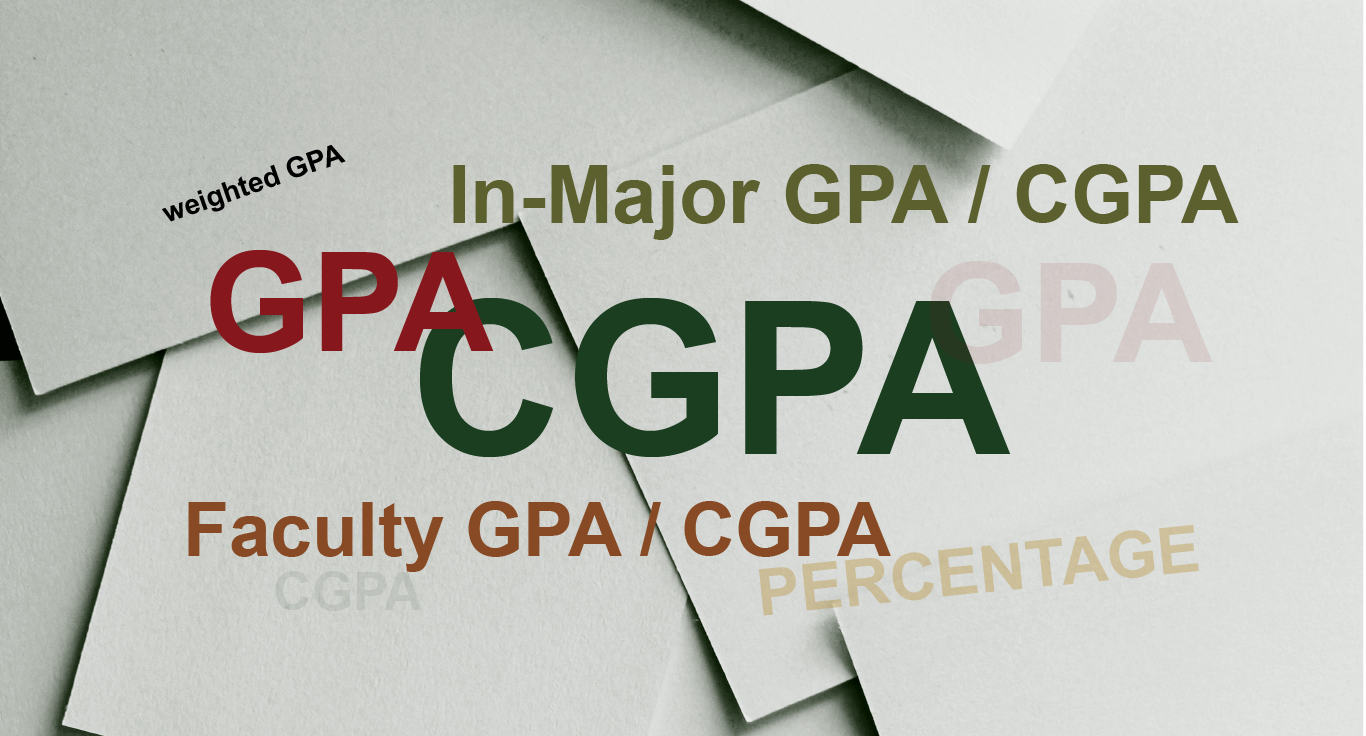Study Guide
Is a 4.3 GPA Good? Colleges That Accept a 4.3 GPA
Understanding what constitutes a “good” GPA can be crucial when considering college admissions. In this discussion, we’ll explore the concept of a 4.3 GPA, higher than the traditional 4.0 scale.
GPA is an acronym for Grade Point Average, a numerical representation of your overall academic performance. It takes into account the grades you’ve earned in your courses and calculates an average score.
We’ll focus on colleges that accept a 4.3 GPA and the implications for students who have achieved this level of academic excellence.
So if you’re curious about how a 4.3 GPA can impact your college prospects, stick around for some valuable insights.
What Does a 4.3 GPA Mean?
GPA, or Grade Point Average, is a numerical representation of your academic performance. It takes into account the grades you have received in your courses and provides an overall average score.
The GPA scale is typically based on a 4.0 scale, where a 4.0 represents an “A” grade, 3.0 represents a “B” grade, and so on. However, a 4.3 GPA indicates that you have achieved an even higher level of academic excellence.
It suggests that you have consistently earned grades above the standard A level, such as A+ or A++. This exceptional GPA reflects your strong commitment to learning, study dedication, and exemplary course performance.
It’s important to note that GPA scales can vary depending on the educational institution, so it’s always a good idea to familiarize yourself with your school’s specific grading system.
Understanding GPA Ratings
GPA ratings typically fall into different ranges, varying slightly depending on institutions. Generally, ratings can be categorized as poor, below average, average, good, and excellent.
However, it’s important to note that the perception of what constitutes a “good” GPA can be subjective and context-dependent. Factors such as the rigor of coursework, grading scales, and individual goals can influence how a GPA is evaluated.
For instance, a GPA that may be considered excellent in one academic program or institution might be considered average in another.
It’s crucial to remember that GPA is just one aspect of a holistic evaluation. Admissions committees and employers also consider other factors like extracurricular activities, leadership roles, personal statements, and work experience.
So while a good GPA is important, it’s equally important to showcase your unique strengths and accomplishments beyond your GPA.
Is a 4.3 GPA Good?
In the context of GPA ratings, a 4.3 GPA is considered excellent. It reflects a high level of academic achievement and dedication to your studies.
When comparing it to average GPAs in different educational levels, a 4.3 GPA surpasses the typical average GPAs seen in high school and even some college programs.
It demonstrates a strong academic performance and can be a valuable asset in college admissions or certain career paths that place emphasis on academic excellence.
However, it’s essential to consider personal goals and individual circumstances. While a 4.3 GPA is commendable, it’s crucial to remember that academic achievement is just one aspect of a well-rounded individual.
Personal goals may vary, and it’s important to strike a balance between academic pursuits and other areas of life, such as extracurricular activities, community involvement, and personal growth.
Additionally, individual circumstances can play a role in shaping academic performance, and it’s important to acknowledge and consider those factors when evaluating the significance of a GPA.
Ultimately, a 4.3 GPA is an impressive accomplishment, but it’s important to view it as part of a broader picture of your skills, experiences, and personal goals.
Is a 4.3 GPA Good for College Admissions?
A 4.3 GPA is considered excellent and can significantly enhance your chances of being admitted to top-tier colleges and universities. It showcases a high level of academic achievement and dedication to your studies, which is highly valued by admissions committees.
However, it’s important to note that college admissions decisions are based on a holistic review of your application, which includes factors beyond just GPA. Admissions officers consider various aspects such as extracurricular activities, essays, recommendation letters, standardized test scores, and personal qualities.
While a 4.3 GPA is impressive, it’s important to remember that admission to highly selective institutions is highly competitive. Many applicants with exceptional GPAs also possess outstanding achievements in other areas.
So, while a 4.3 GPA can enhance your chances, it’s crucial to complement it with a well-rounded profile that includes involvement in extracurricular activities, leadership roles, community service, and a compelling personal statement.
Ultimately, a 4.3 GPA is a valuable asset in the college admissions process, but it’s important to strive for a balanced application that highlights your diverse strengths and accomplishments.
Is a 4.3 GPA Good for Grad School?
A 4.3 GPA is considered exceptional and can be a strong indicator of your academic abilities and commitment to your studies. It demonstrates a high level of mastery in your field of study, which is highly valued by graduate programs.
However, it’s important to note that grad school admissions decisions are multifaceted. Along with GPA, factors such as research experience, letters of recommendation, statement of purpose, and standardized test scores (such as the GRE or GMAT) are taken into consideration.
Additionally, different programs and institutions may have varying admission requirements and expectations.
While a 4.3 GPA is impressive, it’s essential to focus on building a well-rounded application. Engage in research projects, gain relevant work experience, and participate in extracurricular activities related to your field of interest.
Additionally, strong letters of recommendation and a compelling statement of purpose can further strengthen your application.
Remember that admission to grad school is competitive, and many applicants will have strong academic records. So, while a 4.3 GPA is advantageous, it’s important to showcase your research potential, passion for the field, and alignment with the program’s goals and values.
Ultimately, a 4.3 GPA can greatly enhance your prospects for grad school admission, but it’s essential to present a comprehensive application that reflects your academic excellence, research experience, and future aspirations.
Is a 4.3 GPA Good for Middle School?
When it comes to middle school, a 4.3 GPA is outstanding. It shows a high level of dedication and academic achievement. While a middle school GPA might not be as crucial as it is in high school or college admissions, a 4.3 GPA certainly reflects your hard work and commitment to your studies.
However, it’s important to remember that middle school GPA alone doesn’t determine your future success. Middle school is a time for growth, exploration, and discovering your interests. It’s essential to engage in a variety of activities, develop social skills, and pursue your passions outside of the classroom.
Focus on building a well-rounded profile by participating in extracurricular activities, pursuing hobbies, and developing good study habits. Middle school is a stepping stone towards high school and beyond, where your GPA will play a more significant role in college admissions.
So, while a 4.3 GPA is impressive and reflects your academic abilities, it’s equally important to enjoy your middle school years, explore different subjects, and develop a love for learning. Keep up the good work, but remember to balance your academics with personal growth and exploration.
Is a 4.3 GPA Good for High School?
Having a 4.3 GPA in high school is a fantastic achievement. It demonstrates a strong commitment to academics and a high level of academic performance. A 4.3 GPA is considered excellent and reflects your hard work, dedication, and intellectual capabilities.
Having such a high GPA in high school opens up many opportunities for you. It can make you a competitive candidate for college admissions, scholarships, and other academic pursuits. Colleges often value high GPAs as they indicate your ability to handle rigorous coursework and excel academically.
However, it’s important to remember that a GPA is just one aspect of your overall profile. Admissions committees also consider other factors such as extracurricular activities, personal statements, letters of recommendation, and standardized test scores.
So, while a 4.3 GPA is impressive, it’s equally important to focus on personal growth, engage in extracurricular activities, and pursue your passions outside of academics.
Keep up the great work, but remember to balance academics and high school experience. Your GPA is a reflection of your academic achievements. Still, taking care of your overall well-being and exploring different interests during this important time of your life is important.
What Letter Grade is a 4.3 GPA?
A 4.3 GPA is typically equivalent to an “A” letter grade. The letter grade system varies across schools and educational institutions, but in many cases, a 4.3 GPA falls within the highest grade range.
In most grading scales, an “A” represents excellent performance and signifies that you have consistently achieved outstanding marks in your coursework. It reflects your ability to grasp and apply the concepts taught in your classes at a high level.
It’s important to note that grading scales vary slightly between schools, districts, or countries. Some schools may use a different scale, such as a 4.0 scale, where a 4.3 GPA might correspond to an “A+” or a similar designation.
Remember, a high GPA like 4.3 is a testament to your hard work, diligence, and academic achievements. Being proud of and showing dedication to your studies is an accomplishment.
Converting 4.3 GPA to Percentage: A Comprehensive Guide
Converting a 4.3 GPA to a percentage scale can help you understand your academic performance in a different context. While GPA is commonly used for grading, some situations or institutions may require a percentage equivalent. Here’s a comprehensive guide to assist you:
- Understand the grading scale: A 4.3 GPA is an exceptional achievement. To convert it to a percentage, you can assume that a 4.3 GPA is close to, or at, the top of the scale. Therefore, it can be considered equivalent to approximately 95-100%.
- Check for variations: Different institutions may have grading scales or conversion methods. It’s important to verify if your institution follows a different scale or provides specific guidelines for converting GPA to a percentage. Consult with your school or academic advisor to ensure accuracy.
- Utilize conversion formulas: If you require a more precise conversion, you can use formulas or tables specifically designed for converting GPA to a percentage. These resources summarize GPA ranges and their corresponding percentage equivalents, accounting for decimal points.
Remember, converting from GPA to a percentage is not an exact science and may vary depending on the institution or context. Always consult with the relevant authorities or references to ensure you have the most accurate conversion for your specific situation.
Top 7 Colleges That Accept a 4.3 GPA
While we can’t provide an exhaustive list, we can give you a sense of some well-regarded institutions that accept students with a 4.3 GPA.
It’s important to note that admission decisions are influenced by various factors beyond GPA, such as extracurricular activities, essays, recommendations, and more.
Here are seven colleges known for their academic excellence and consideration of high-achieving students:
- Harvard University
- Stanford University
- Massachusetts Institute of Technology (MIT)
- Princeton University
- California Institute of Technology (Caltech)
- Columbia University
- University of Pennsylvania
Remember, this is just a selection, and many more prestigious colleges recognize and value students with exceptional GPAs. When making college choices, it’s crucial to research factors beyond GPA, such as program offerings, campus culture, location, and other personal preferences.
Can I still get scholarships with a 4.3 GPA?
Of course! A 4.2 GPA is a commendable achievement and can make you eligible for various scholarships. While GPA is an important consideration for scholarships, it’s not the sole factor. Here are the scholarships that you are eligible for:
- Rice Merit Scholarship
- Purdue University Merit Scholarships for Scholars
- Duke Merit Scholarships for International Students
- USC Merit Scholarships for Students
- The Free UTRGV Merit-Based Scholarships
- Brigham Young University BYU Scholarship
How Does a 4.3 GPA affect my Career Prospects?
It’s important to remember that while GPA can be a factor in certain situations, it’s not the sole determinant of your success. Here’s some insight to consider:
- Debunking GPA misconceptions: Contrary to popular belief, many employers prioritize skills, experiences, and practical knowledge over GPA alone. They understand that academic performance is just one aspect of your overall qualifications.
- Significance of skills, experiences, and networking: Building a diverse skill set, gaining relevant work experience through internships or projects, and developing a strong professional network is often valued more than GPA. These factors demonstrate your practical abilities and can make you a strong candidate in the job market.
- Industries with less emphasis on GPA: While some industries may place more importance on GPA, many sectors focus on practical skills and accomplishments. Creative fields, entrepreneurship, and industries where experience and a proven track record matter often value your abilities and portfolio more than your GPA.
- Leverage internships, projects, and extracurriculars: Participating in internships, engaging in meaningful projects, and involving yourself in extracurricular activities allow you to showcase your practical skills, initiative, and passion. These experiences can outweigh the GPA factor and provide valuable talking points during interviews.
- Developing a strong personal brand: Building a strong personal brand helps you differentiate yourself from other candidates. Emphasize your unique strengths, experiences, and achievements through a well-crafted resume, online presence, and networking efforts. Highlighting your individuality can make you stand out to employers.
Remember, while a 4.3 GPA is impressive, combining it with practical experiences, skills, and a strong personal brand is essential. Focus on showcasing your abilities and highlighting what makes you an exceptional candidate in your chosen field.
Your GPA is just one piece of the puzzle, and leveraging your strengths and experiences will help you achieve your career goals.
FAQ
This GPA is weighted (it considers the difficulty of your classes and your grades) because it is higher than a 4.0. This GPA is excellent. It most likely indicates that you are enrolling in challenging courses and receiving As and Bs.
A 4.3 GPA increases a student’s chances of admission to highly regarded universities. Around 3.0 GPA is thought to be the national average. Nearly 50% of national colleges accept applicants with GPAs of 3.0 or higher.
A+ is 4.3, A is 4.0, and A- is 3.7. Weighted GPAs offer grades obtained in challenging coursework, such as the International Baccalaureate curriculum, more points or weight.
Conclusion
A 4.3 GPA is not something one gets on a platter of gold. Getting such GPA means you have done well and worked hard to get such a result. Continue to work hard, and you will not regret it.
Reference
- turito.com – 4.3 GPA: Is this Good? Colleges that Accept 4.3 GPA
- prepscholar.com – What is a 4.3 GPA? What colleges accept a 4.3 GPA?
- admitkard.com – How to Convert GPA to Percentage?
Recommended
- UCLA Acceptance Rate | Requirements, SAT/ACT Scores, GPA, & Admissions
- Villanova Acceptance Rate | Requirements, SAT/ACT Scores, GPA, & Admission
- University of Pittsburgh Acceptance Rate | Requirements, SAT/ACT Scores, GPA, & Admission
- Purdue Acceptance Rate | Requirements, SAT/ACT Scores, GPA, & Admission
- George Mason University Acceptance Rate | Requirements, SAT/ACT Scores, GPA, & Admissions
- Wellesley College Acceptance Rate | Requirements, SAT/ACT Scores, GPA, & Admissions
- University of Maryland Acceptance Rate | Requirements, SAT/ACT Scores, GPA, & Admissions
- University of Cincinnati Acceptance Rate | Requirements, SAT/ACT Scores, GPA, & Admissions
- Regis College Acceptance Rate | Requirements, SAT/ACT Scores, GPA, & Admissions
- Stonehill College Acceptance Rate | Requirements, SAT/ACT Scores, GPA, & Admissions






